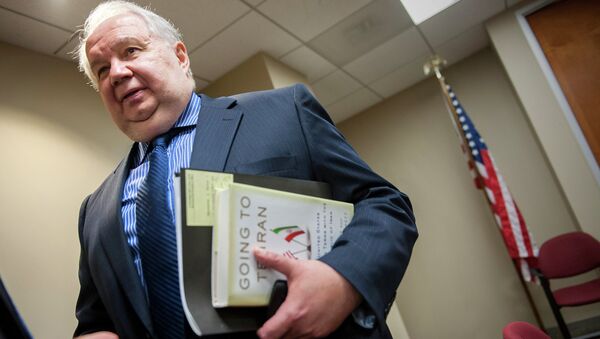"No, it is not at an impasse, it is in a difficult situation, but not at an impasse," Kislyak said.
The Russian envoy asserted that "our experts working in the field have their own opinion on who is dragging [the Syrian reconciliation process] and why," in response to US claims, and explaining that work is still underway to find common ground.
Differences of opinion over the fate of Syrian President Bashar Assad should not prevent Russia and the United States from working on other areas in the crisis-torn country, Kislyak said.
"We do not have consensus on this matter, but that does not mean that we should not work together on much more, meaning the fight against terrorism, but a real fight so that we can reinforce each other’s capabilities in this regard," Kislyak said.
The Russian envoy echoed Moscow’s and the UN Security Council’s longstanding stance that the fate of the Syrian leadership rests with the will of the Syrian people.
"What we and the Americans can do is to help remove this cancer of terrorism, to help find common ground in the talks between the conflicting parties," Kislyak reiterated, adding that constitutional and other political decisions are up to the Syrians themselves.
Kislyak added that holding a new International Syria Support Group (ISSG) session "for the sake of a meeting" was unnecessary unless it gave an impetus for progress.


